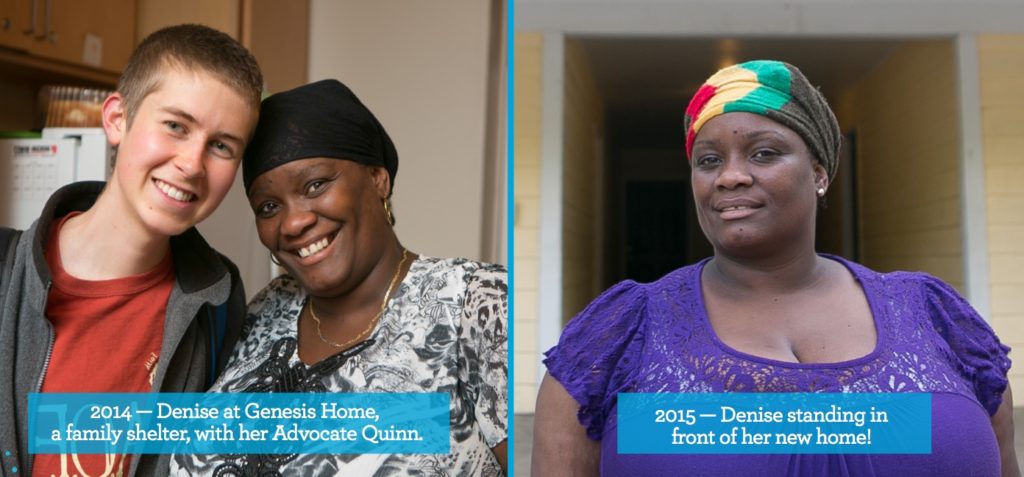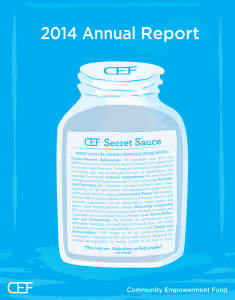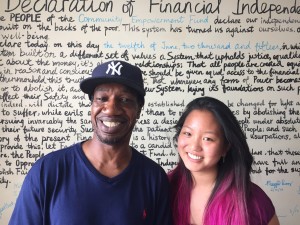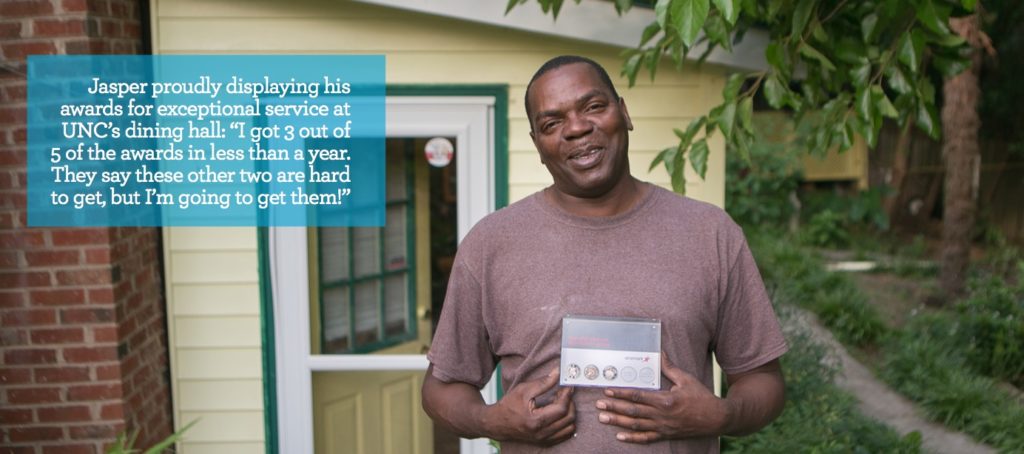By Donna Carrington,
Original Published here on CFED.org
A common assumption is that financial coaching is not a good fit for clients who are in crisis. Community Empowerment Fund (CEF) assists clients facing a housing crisis (i.e., at risk for homelessness or are already homeless), and our philosophy of financial coaching contradicts this assumption. We believe that financial capability, an empathetic and empowering one-on-one relationship, and creative savings plans allow for ongoing coaching, even during times of crisis.
CEF’s philosophy of financial coaching is a three-pronged approach. To begin, we offer classes for financial capability called Opportunity Classes in which our members have the opportunity to gain knowledge about general financial information and can use the knowledge to make more educated and informed decisions about their situation. The subject matter includes credit reports and scores, job readiness (resume building, interview skills, etc.) and the banking industry (e.g., credit unions versus regular banks). These classes allow our members to gain financial knowledge and make informed choices about their self-defined goals.
The second prong of CEF’s approach is the advocate-member relationship. Our advocates are volunteers—mostly undergraduate students—who work in two-person teams along with a member (the person experiencing the housing crisis). The relationship lasts for as long as the member wants to continue working on their various goals, which are completely member-driven. Throughout this time, an empathetic and collaborative rapport is built between all involved. The member feels they are in the driver’s seat and therefore “drive” the partnership. The advocates are therefore the supportive body of the relationship. This way of coaching is especially helpful in crisis because all parties involved can brainstorm possible solutions together and come up with a plan based on the member’s choice.
There are times in this advocate-member relationship when financial education also occurs. For example, a member may need an advocate to walk them through the process of acquiring and learning to read a credit report. Having this information during a crisis could help the member decide whether it is time to fix credit issues that could be adversely affecting their housing situation. Paying off an eviction or handling credit card issues to gain a better credit score in order to qualify for renting a home would be something an advocate and member could work on together. Scheduling subsequent meetings with the member and holding them accountable to establishing their own goals in crisis is also a key component to the advocate-member relationship, and allows us to work together on addressing both the short-term crisis and longer-term dreams.
The third prong of CEF’s financial coaching approach involves establishing savings goals and offering a financial matching amount if the goal is achieved. The advocates or CEF’s Savings Program Associates can walk a member through the process of establishing a savings goal. For a majority of our clients, the goal towards new and sustainable housing is the most immediate goal. We base this goal around many factors, including size and kind of housing needed, what the security deposit would be, deposits for utilities and various other factors. As a former member, this process really helped me to get an accurate picture of how much it would take for me to obtain a home of my own, including calculating the income I would need to maintain this housing. I also learned to set a reasonable goal based on what I needed to save and which savings plan would allow me to feel comfortable to do so. Not everyone in crisis is ready to set such a large goal. As such, we are able to set smaller, less time-intensive goals in order for people to become accustomed to saving regularly and experience the reward of accomplishing their goal. We build savings plans with our members that are appropriate to their unique budget constraints and that leverage our community’s resources, and we connect members directly with reliable, affordable accounts with area financial institutions. All of the ways we work with members on achieving their savings goals are applicable even in times of crisis because members are in the driver’s seat and they are learning to establish new, financially informed behavior within the framework of empathetic support.
Community Empowerment Fund’s financial coaching approach has shown to be very effective to the clientele in our area, even in times of crisis. The Opportunity Classes, the member-advocate partnership, and the ways we set savings goals and use savings plans make CEF a key component in educating and supporting our members in building financial capability, while making CEF a driving force in the ongoing fight to help end homelessness in our area.











